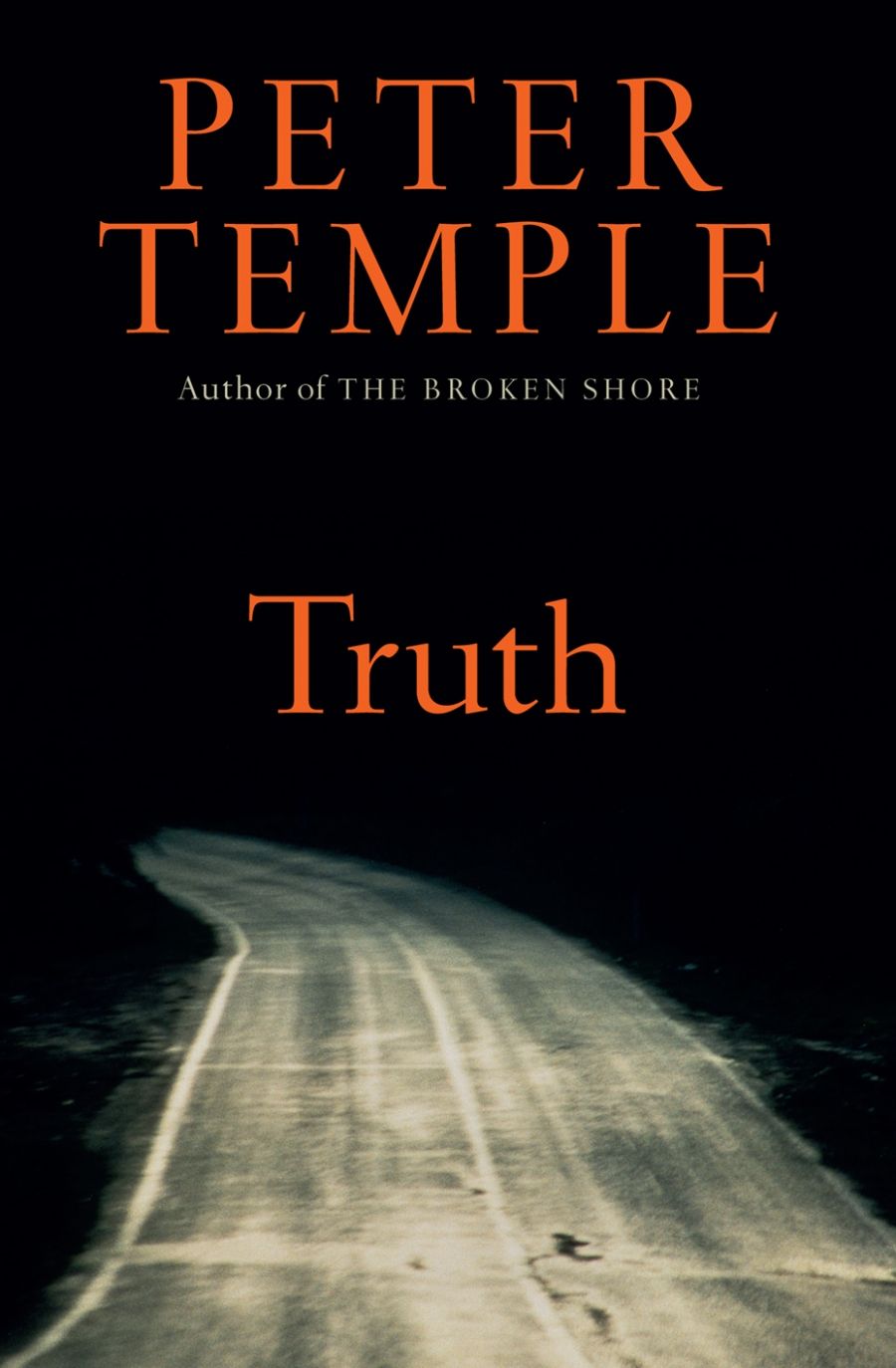
- Free Article: No
- Contents Category: Fiction
- Custom Article Title: Chris Womersley reviews 'Truth' by Peter Temple
- Review Article: Yes
- Online Only: No
- Custom Highlight Text:
In Peter Temple’s phenomenally successful The Broken Shore (2005), detective Joe Cashin wonders what the right result might be in the case of murdered businessman and philanthropist Charles Bourgoyne. Lawyer and romantic interest Helen Castleman’s answer is succinct: ‘The truth’s the right result.’ The truth of The Broken Shore was murky, disturbing and came with a price ...
- Book 1 Title: Truth
- Book 1 Biblio: Text Publishing, $32.95 pb, 386 pp, 9781921520716
- Book 1 Readings Link: booktopia.kh4ffx.net/72P2Q
One hot night the summer after Melbourne’s devastating 2009 bushfires, the body of a young woman, neck broken, is discovered in the bathroom of an exclusive apartment building in the Docklands precinct. Adjacent to the new Orion Casino, the Prosilio Building is for the absurdly wealthy and has state-of-the-art security, ‘spruiked to be as safe as living next door to Benalla copshop in 1952’. Since no one can enter or leave without being filmed, finding the killer should be a cinch, except for an inconvenient IT malfunction on the night.
Villani is a familiar character from the crime genre and – with his troubled family life, emotional disengagement, moral uncertainties and perpetually acerbic manner – is perhaps too similar to Joe Cashin. In The Broken Shore, Cashin even noted that Villani was like him before the smash that almost ended Cashin’s life. The ghost of mentor Singo hangs over Villani, and his job is so involving he has neglected everything else: his marriage is disintegrating; his children barely see him (‘Dad, you are so out of touch with this family’); he barely sleeps; and he is struggling to keep his head above the tide of moral turpitude both on the street and within the force that threatens to overwhelm him every day.
If all that were not enough, three men are found dead in a shed in Oakleigh. Two of them have been tortured: ‘Noses, tackle cut off, hair burnt. There is pleasure involved.’ The two who have been tortured are notorious gangsters, and the trail to find the killers takes Villani and his cohort into some pretty seedy realms, where more bodies are discovered. Looming in the background of these two investigations are Villani’s numerous personal problems. His brother Mark seems to be involved with drugs and bikers. Bushfire threatens the property where his father lives. His teenage daughter is highly disturbed.
The Prosilio investigation leads Villani into the seductive world of the rich and powerful. ‘Career-defining moment this could be,’ says the assistant commissioner; it is unclear whether his words are intended as a warning or an incentive. Despite unanswered questions concerning actions earlier in his career – or perhaps because of them – Villani is being groomed for higher things. When he unearths links to high-profile businessmen, politicians and senior police, he is forced to weigh up the value of truth over considerations for his own career.
This is superior crime fiction, where the struggle of the main character to resist corruption by the world he investigates is as compelling as the solving of the crime itself. With multiple investigations and a larger cast of characters, there is more happening here than in The Broken Shore, and Truth avoids the slight bagginess around the middle that slowed the previous novel. Temple has a gift for striking images (‘Below them, small paw prints of light came on, walking in big strides down to the river’), but the detours into baroque description sometimes sit uneasily with dialogue that is often so cryptic as to be incomprehensible. One of the pleasures of the genre lies in solving the crime, but constantly having to reread sections in order to discern what characters are talking about can be frustrating.
Despite this, Truth is rich and satisfying, and draws the reader into a world that is both recognisable and grotesque. Temple’s fans – and they are legion – have been waiting some years for this novel, and it won’t disappoint. For other Australian crime writers, however, this Truth will hurt; those publishing a novel in the next twelve months can probably kiss that 2010 Ned Kelly Award goodbye.


Comments powered by CComment